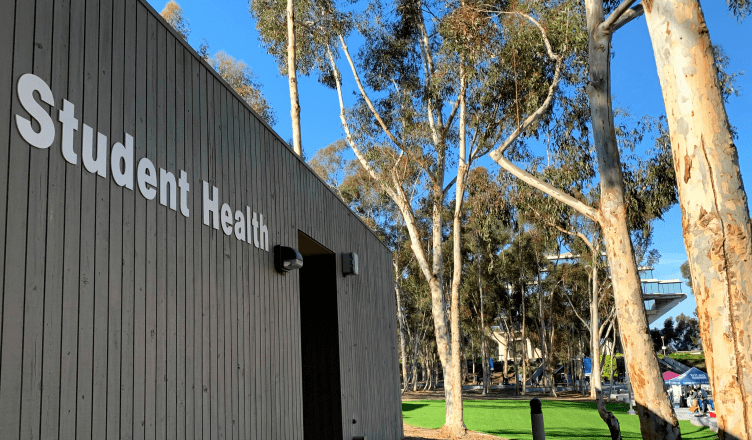A message to universities on their campus health facilities
The importance of education and of career-building has been reiterated innumerable times to students embarking on their collegiate experience. But, the colleges that these students attend often fail to realize the necessities that must be met for a chance at academic success.
An instance of this was on flagrant display during the first week of Spring Quarter 2022 at UC San Diego. During class, a student fainted and experienced a seizure for around five seconds before regaining consciousness. This instance was followed by swift action by the professor and multiple students who volunteered to get them the care they needed. Among them, one went to Student Health Services in hopes of bringing back help. But upon presenting this request, this volunteer was met with a heartless remark by a staff member about SHS not having enough time to bring the student who was in distress to the SHS center from a class that was a five-minute walk from the center. This was harshly criticized later by Dr. Phillips* in class. Dr. Phillips has since sought out more information and justification for the situation that ensured that day and later stated that “the university encourages instructors to immediately call 9-1-1 in the event of any health crises students face.”
Representatives at the center followed this protocol and gave insensitive suggestions that an ambulance be called, showing continued disregard for the student’s health and financial status, with San Diego ambulances costing between $2,022 and $2,671. How can UCSD boast its premier medical research and practices when it refuses to even follow CDC recommendations of how to handle seizures which explicitly state that emergency services should not be called in such cases?
Following this exchange, the student volunteer reported back to the classroom to help walk the student to the SHS center themselves without any professional, wheelchair or any other assistance. This should have never happened, especially at an institution which mandates that students have UC SHIP or proof of outside coverage. The SHS, from a student perspective, is there to address cases just like this along with providing reliable routine primary care.
But when facilities like these cannot even pretend to want to help, there must be a better way to operate student services catering to student health, housing, enrollment, financial standing, and more. This requires a holistic approach which focuses on both streamlining existing facilities to help students get their needs met and creating new institutions of student support that possess qualities that facilities cannot offer at all currently. Dr. Phillips recommended another approach starting with addressing “ignorance of medical protocol surrounding seizures,” where systemic health reform centers students and their stories. This methodology could even be extended beyond the professor’s recommendation on seizure-centric data collection and creating on action agendas to guide reform in university health services catered towards such episodes. With increased vigilance on the pitfalls of the current system when faced with certain groups of health crises, solutions can be drawn up that are respectful of the complexity of each situation that can be solved with tact and specificity that the current 9-1-1 guidance fails to offer.
This starts with having student-serving facilities at all to address student health. In the State of California, campus health centers are considered non-categorical programs that are not required on college campuses. Wrongly so. When the UC system is already spending 39% of its budget on medical centers and in-patient care, surely the system can extend this courtesy and sense of priority beyond highly profitable and efficient medical centers to the SHS that each UC school must strive to provide. It would be a great shame to see UCSD spend like the United States does federally, with little success to show for the high spending, compared to other countries with socialized medicare provided at lower costs. The U.S. population’s decrease in life expectancy for the second year in a row is one of many statistics that illustrate our systemic failure.
Universities across the United States have also faced significant backlash for not having accredited healthcare available to students. Such non-accredited programs include the prestigious Georgetown University’s student health facilities. Only 220 college health services are currently accredited nationally. This is highly troubling considering the 5,000+ colleges and universities that call the U.S. their home. Mandating accreditation should be a bare minimum that all colleges should meet before continuing to turn a profit on students’ tuition. But even UCSD’s accredited health care services failed a student in their time of need. With student health maintaining importance and 40% of university students “experiencing a significant mental health problem,” increased spending on resources and staff must be considered as well. Additionally, 60% of students have limited access to medical facilities, and short-staffing further exacerbates this.
If medical staff claim that they are too busy to address a medical emergency, either they were negligent towards a student, or they were short-staffed. Both instances require a thorough objective investigation. Though precedent was set in 2021 to survey university health centers on their views of successes and failures in the approach to student health, there remains an extreme need for independent reporting of shortcomings in the lack of universities’ prioritization of student health and wellbeing. These studies must be followed with proactive changes to ensure students are cared for during their collegiate experience.
Health precedes every financial, academic, and social success. This is the mentality UCSD, Georgetown, and other universities must adopt. The evidence pointing towards the need for critical restructuring of student health services is ever-growing and must be considered.
*The professor’s name has been changed to protect their identity
Photo by the UCSD Guardian Photo Team.

















Janae Marks • Jun 18, 2022 at 1:37 pm
It unfortunates me a lot! What may be more important than students’ health? Education is such a stressful process. I also fainted during lessons because of the big burden. Then I decided to use this source https://writix.com/pay-for-coursework to get help with at least some part of my tasks. I hope this situation will never happen again.